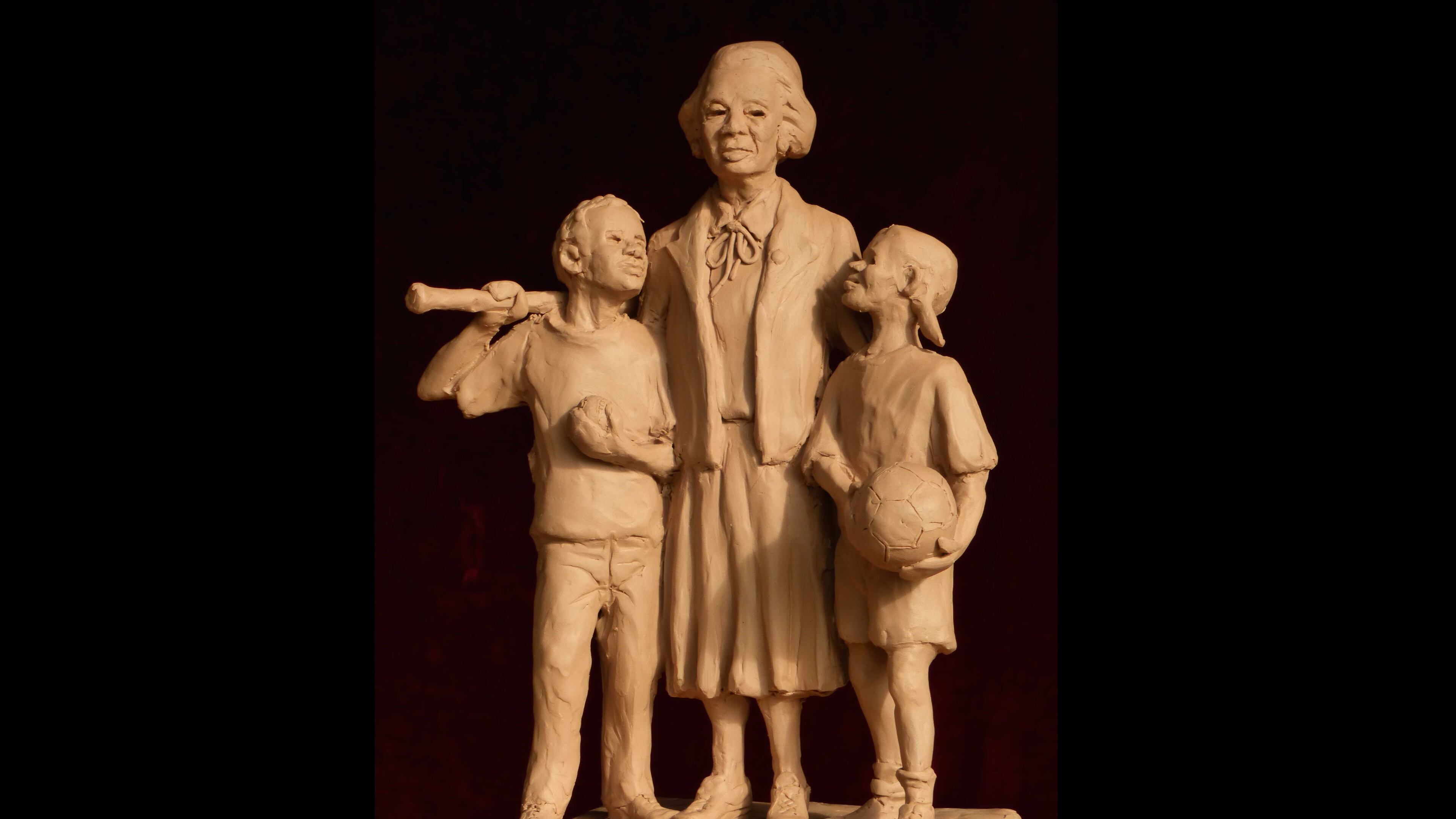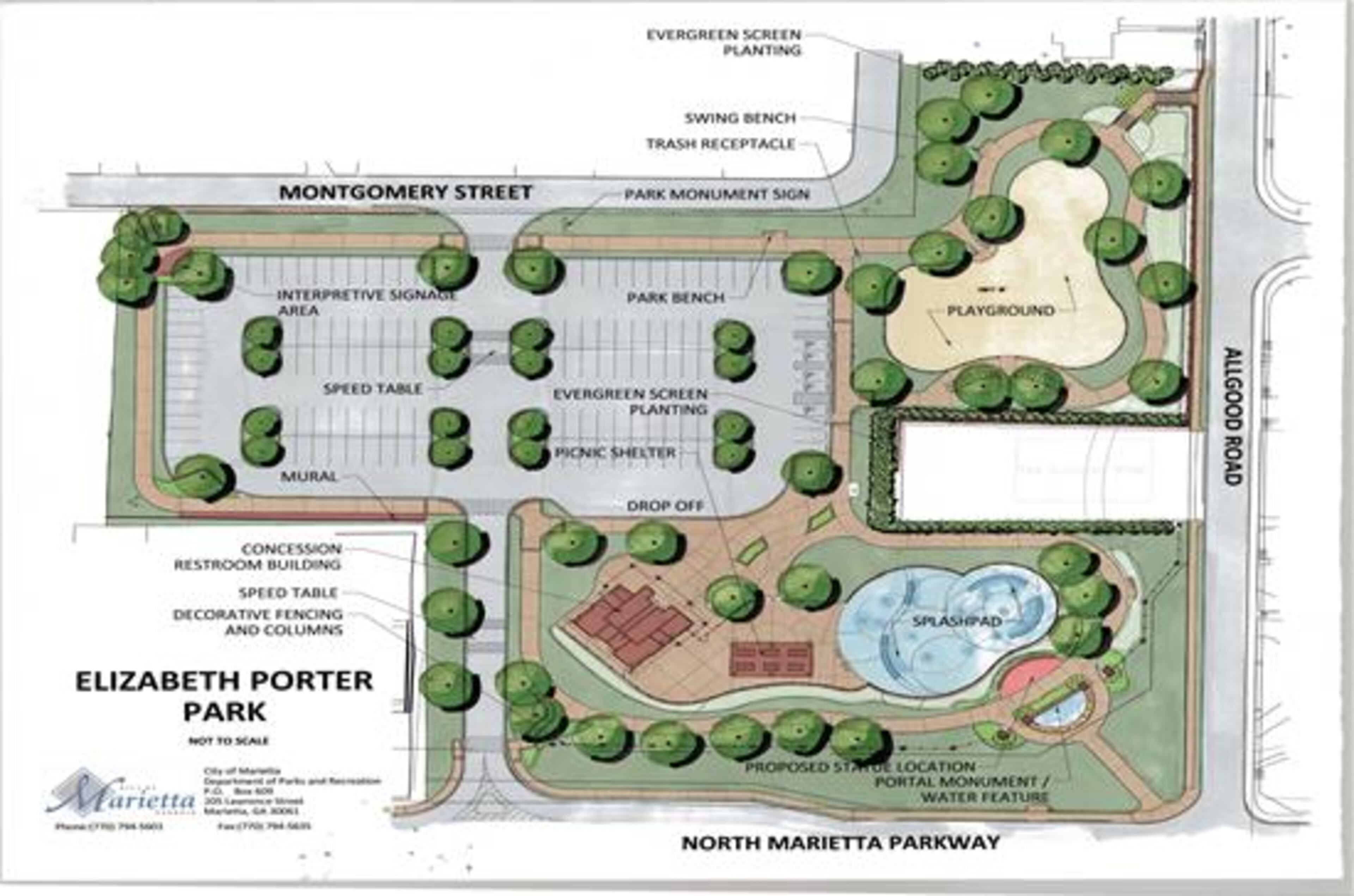As a Marietta board dissolves, it donates $40K to a new park project

When one project ends, it can sometimes help create something new — particularly in city government.
When the Marietta Redevelopment Corporation dissolved late last month, it decided to donate the rest of its funds — $40,701 — to help make the Elizabeth Porter Park a reality.
The redevelopment group spent a decade facilitating projects throughout the city. It sold eight acres of land to a developer who plans to build 78 homes. And, once it cleared expenses, the nonprofit group was left with the money it donated to the Elizabeth Porter Historic Committee.
The donation nearly doubled the amount that committee has raised to create the park, which is set to include a splash pad along with monuments and educational information about the area's history.
The park will be located at 370 Montgomery St. on the site of the former Elizabeth Porter Recreation Center —known as "The Canteen" — which served as a space for the historically black Baptist Town community.
A city news release said councilwoman Michelle Cooper Kelly made the push to give the funds to the park.

Kelly, who is involved with the city’s historic preservation efforts, said in the release that the park committee formed in September 2015 to establish “a timeline between the historic hospital, the once popular canteen, and the final re-purpose to the Elizabeth Porter recreational facility. Needless to say, this facility meant a lot to the Baptist Town community.”
The city will need more than money to complete the park; it'll need a blessing from the Supreme Court of Georgia.
Ray Summerour owns Baptist Town’s last grocery store, Brenda’s Grocery, which was condemned by the city in 2014 after several years of failed negotiations to buy the land to create the park.
But Summerour successfully appealed the condemnation. The appeals court ruled the city violated the Landowner's Bill of Rights by not providing him with the details of the city's appraisal of the property.
And now the city wants to head back to the highest court in Georgia to get that ruling reversed.
The argument has essentially boiled down to a philosophical argument over whether the Landowner’s Bill of Rights is a hard-and-fast rule or merely guidelines.
You can read more about the current fight, its history and both sides of the dispute on myAJC.com.



